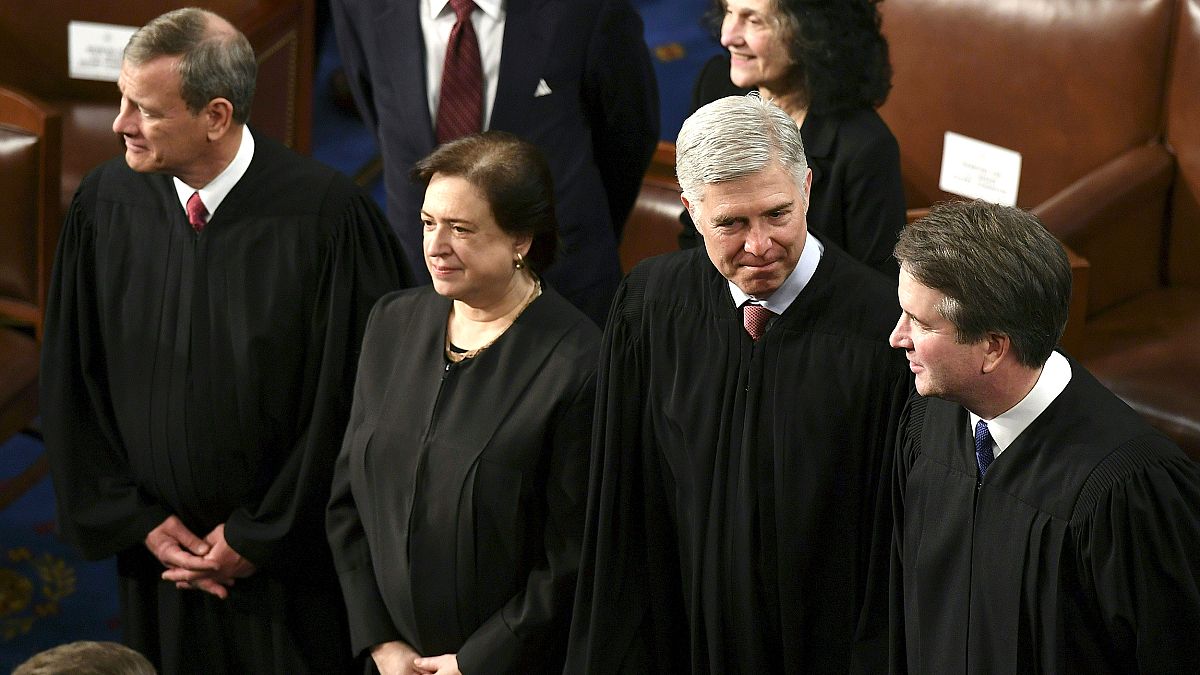18 states, several of the nation's largest cities, and immigrant rights groups say the question would make immigrants reluctant to respond to census takers.
WASHINGTON — The U.S. Supreme Court hears its highest profile case of the term Tuesday — a battle over the Trump administration's plan to add a citizenship question to the 2020 census form that goes to every U.S. household.
A total of 18 states, several of the nation's largest cities, and immigrant rights groups say the question would make immigrants reluctant to respond to census takers, resulting in an undercount of the population. They won two battles in the lower courts, prompting the government's appeal to the high court.
The Constitution requires a census every 10 years, and the results determine how many members each state gets in the U.S. House of Representatives. The data is also used to calculate a local government's share of funds under many federal programs.
Commerce Secretary Wilbur Ross said the question was added at his direction after he received a letter from the Department of Justice which said the data was needed to properly enforce civil rights laws. But Federal District Court Judge Jesse Furman of New York said the evidence at a trial on the issue revealed that Ross' claim was nothing but a pretext.
Furman concluded that Ross actually prodded the Justice Department to send the letter, which demonstrated that he "made the decision to add a citizenship question well before he received DOJ's request." The judge also found that including the question would violate a federal law requiring the government to get as accurate a count as possible, because it would "materially reduce response rates among immigrant and Hispanic households."
Led by New York, the states opposing the question also said Ross' directive sidestepped the Census Bureau's long-standing procedures for testing changes to the questionnaire in order to evaluate whether they would lead to an undercount. Because the citizenship question would depress minority responses, the challengers said, including it on the form would actually produce a less accurate count than leaving it off and using Social Security and IRS data to supplement the information gathered from the census form.
The administration of President Donald Trump argued at the trial that questions about citizenship or country of birth have been asked during all but one census from 1820 to 2000. But in recent decades, the long-form version that included those questions — along with others about race, sex, Hispanic origin, and relationship status — was not sent to every household.
Separately, a judge in San Francisco ruled in March that including the citizenship question would violate the Constitution's requirement for an "actual enumeration" of the population. U.S. District Court Judge Richard Seeborg agreed with California that adding the question would discourage responses within the noncitizen and Latino communities, even among those here legally. The negative effect of including the question would be magnified by the current immigration debate, he said.
A Supreme Court brief filed by civil rights advocates agreed. "The Census Bureau's confidentiality obligations provide cold comfort to Latino immigrants," it said. "The Trump Administration has created an environment of fear and distrust in the Latino community."
The American Civil Liberties Union said an analysis by the Census Bureau estimated that almost 6 percent of households where a noncitizen lives would not respond to the census if the question is added. That would amount to about 6.5 million people.
Trump weighed in on the controversy in early April. "Can you believe that the Radical Left Democrats want to do our new and very important Census Report without the all important Citizenship Question," he said in a tweet. "Report would be meaningless and a waste of the $Billions (ridiculous) that it costs to put together!"
The court will decide the case by late June.
